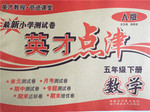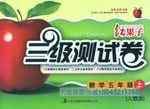
He ________ computer games all night.No wonder he is so sleepy.
A.has played
B.played
C.was playing
D.has been playing
 英才点津系列答案
英才点津系列答案 红果子三级测试卷系列答案
红果子三级测试卷系列答案科目:高中英语 来源: 题型:完形填空
查看答案和解析>>
科目:高中英语 来源:2012届黑龙江省哈六中学高三第三次模拟考试英语试卷(带解析) 题型:阅读理解
Have you ever walked outside thinking it was one temperature but quickly discovered it felt colder? That is because of the “wind chill” effect.
Wind chill is how cold people and animals feel when they are outside, not the actual temperature on the thermometer(温度计). It is based on how quickly your body loses heat when it is exposed to wind and cold. When the wind is strong, your body quickly loses heat, making the temperature of your skin drop.
When scientists first started calculating wind chill, they used research conducted in 1945 by explorers to Antarctica who measured how quickly water froze outside.
But water freezes faster than exposed skin, so the wind chill index based on that data wasn’t accurate.
In 2001, the US government began to measure wind chill more precisely by testing how quickly people’s skin froze.
Twelve volunteers were placed in a chilled wind tunnel. Equipment was stuck to their faces to measure the heat flow from their cheeks, forehead, nose and chin while they walked three miles per hour on a treadmill(跑步机).
The experiment revealed how quickly exposed skin can be damaged, particularly unprotected areas like your fingers, toes, the tip of your nose and your ear lobes. In fact, 40 percent of your body heat can be lost through your head! Signs you might have frostbite(冻疮) are when the skin turns white or pale and you lose feeling in that area.
The information collected from the volunteers helped scientists work out the math to compute wind chill. It involves wind speed and air temperature.
If, for example, the temperature outside is zero degrees Fahrenheit and the wind is blowing at 15 miles per hour, the wind chill is calculated at 19 degrees below zero. At that wind chill temperature, exposed skin can freeze in 30 minutes.
You can find a calculation table at www.nws.noaa.gov/om/windchill/index.shtml.
Experts advise in cold weather that you wear loose-fitting, lightweight, warm clothing, worn on top of each other. Air caught between the clothes will keep you warm. The best cold-weather coats have head coverings made of woven material that keep out water. So next time the temperature drops and you want to play outside, listen to your parents when they tell you to wrap up warm!
【小题1】 According to the text, wind chill _______.
| A.means how fast exposed skin freezes |
| B.doesn’t affect your head as much as other body parts |
| C.changes according to the temperature on the thermometer |
| D.changes from person to person depending on their health |
| A.When his skin turns red and he loses feeling in that area. |
| B.When he is running faster and he is losing strength quickly. |
| C.When his face is exposed and quickly loses heat even indoors. |
| D.When his skin turns pale and he has no feeling in that area. |
| A.A person’s body temperature and will speed. |
| B.Wind speed and a person’s strength. |
| C.Air temperature and wind speed. |
| D.The location and air temperature. |
| A.It was in 1945 that scientists first began to calculate wind chill. |
| B.Compared with water, people’s exposed skin freezes more slowly. |
| C.The wind chill index based on Antarctica data is considered a standard. |
| D.With the development of technology, many previous researches have been proven wrong. |
查看答案和解析>>
科目:高中英语 来源:2011-2012学年甘肃省嘉峪关市第一中学高一下学期期中考试英语试卷(带解析) 题型:完型填空
We all know something about Thomas Edison. He was a great American 21 .He was in school for only a short time. 22 , he had to leave the school and 23 himself at home and learned a lot. When Edison grew up, he had his own lab. He worked hard and hardly 24 to have a rest.
One day a friend of his brought a young man into his lab. He 25 the young man to Edison. He said the young man had studied in a famous university in Germany and had a lot of 26 of physics and maths. Edison was glad to work with a man like him and 27 him as a helper. A few weeks later, the young 28 about Edison’s past. He began to look down on him. Edison 29 about it, but he said 30 .
Once the young man came into the lab while Edison 31 an important experiment. He stood near the table 32 he didn’t help him. Edison stopped 33 out a bottle and said, “Go to calculate (计算)its volume(容积)and tell me the 34 in two hours.”
At first the young man thought it easy to do it. Soon he 35 it difficult. Two hours later Edison went into his office and saw a lot of paper and books on his desk. Of course he couldn’t compute the volume in the time 36 .
“Why not pour some 37 into the bottle?” said Edison. “Then you’ll 38 calculate its volume!” Having heard this, the young man’s 39 turned red, and he knew Edison was really 40 than him!
| 【小题1】 |
|
| 【小题2】 |
|
| 【小题3】 |
|
| 【小题4】 |
|
| 【小题5】 |
|
| 【小题6】 |
|
| 【小题7】 |
|
| 【小题8】 |
|
| 【小题9】 |
|
| 【小题10】 |
|
| 【小题11】 |
|
| 【小题12】 |
|
| 【小题13】 |
|
| 【小题14】 |
|
| 【小题15】 |
|
| 【小题16】 |
|
| 【小题17】 |
|
| 【小题18】 |
|
| 【小题19】 |
|
| 【小题20】 |
|
查看答案和解析>>
科目:高中英语 来源: 题型:阅读理解
Ⅲ.完形填空(每小题1分,共20分)
阅读下面短文,掌握其大意,然后从各小题所给的四个选项(A、B、C、D、)中,选出最佳选项。
We all know something about Thomas Edison. He was a great American 21 .He was in school for only a short time. 22 , he had to leave the school and 23 himself at home and learned a lot. When Edison grew up, he had his own lab. He worked hard and hardly 24 to have a rest.
One day a friend of his brought a young man into his lab. He 25 the young man to Edison. He said the young man had studied in a famous university in Germany and had a lot of 26 of physics and maths. Edison was glad to work with a man like him and 27 him as a helper. A few weeks later, the young 28 about Edison’s past. He began to look down on him. Edison 29 about it, but he said 30 .
Once the young man came into the lab while Edison 31 an important experiment. He stood near the table 32 he didn’t help him. Edison stopped 33 out a bottle and said, “Go to calculate (计算)its volume(容积)and tell me the 34 in two hours.”
At first the young man thought it easy to do it. Soon he 35 it difficult. Two hours later Edison went into his office and saw a lot of paper and books on his desk. Of course he couldn’t compute the volume in the time 36 .
“Why not pour some 37 into the bottle?” said Edison. “Then you’ll 38 calculate its volume!” Having heard this, the young man’s 39 turned red, and he knew Edison was really
40 than him!
21.A. doctor B. player C. writer D. inventor
22.A. Soon B. After C. Later on D. Soon after
23.A. teach B. play with C. study D. enjoy
24.A. forgot B. remembered C. wanted D. hoped
25.A. showed B. pushed C. introduced D. threw
26.A. news B. books C. knowledge D. dictionaries
27.A. employed B. asked C. made D. watched
28.A. beard B. learned C. read D. told
29.A. told B. was told C. said D. was said
30.A. something B. everything C. nothing D. all
31.A. did B. had C. was doing D. was having
32.A. but B. and C. as D. while
33.A. bringing B. to bring C. taking D. to take
34.A. result B. way C. idea D. opinion
35.A. knew B. saw C. learned D. found
36.A. given B. followed C. said D. taken
37.A. oil B. salt C. water D. food
38.A. carefully B. slowly C. easily D. quietly
39.A.head B. face C. eyes D. ears
40.A. more polite B. stricter C. more kind-hearted D. cleverer
查看答案和解析>>
科目:高中英语 来源: 题型:阅读理解
Since the 1970s, scientists have been searching for ways to link the brain with computers. Brain-computer interface (BCI) technology could help people with disabilities send commands to machines.
Recently, two researchers, Jose Millan and Michele Tavella from the Federal Polytechnic School in Lausanne, Switzerland, demonstrated (展示) a small robotic wheelchair directed by a person's thoughts.
In the laboratory, Tavella operated the wheelchair just by thinking about moving his left or right hand. He could even talk as he watched the vehicle and guided it with his thoughts.
“Our brain has billions of nerve cells. These send signals through the spinal cord (脊髓) to the muscles to give us the ability to move. But spinal cord injuries or other conditions can prevent these weak electrical signals from reaching the muscles.” Tavella says. “Our system allows disabled people to communicate with external world and also to control devices.”
The researchers designed a special cap for the user. This head cover picks up the signals from the scalp (头皮) and sends them to a computer. The computer interprets the signals and commands the motorized wheelchair. The wheelchair also has two cameras that identify objects in its path. They help the computer react to commands from the brain.
Prof. Millan, the team leader, says scientists keep improving the computer software that interprets brain signals and turns them into simple commands. “The practical possibilities that BCI technology offers to disabled people can be grouped in two categories: communication, and controlling devices. One example is this wheelchair.”
He says his team has set two goals. One is testing with real patients, so as to prove that this is a technology they can benefit from. And the other is to guarantee that they can use the technology over long periods of time.
46. BCI is a technology that can ________.
A. help to update computer systems B. link the human brain with computers
C. help the disabled to recover D. control a person's thoughts
47 .How did Tavella operate the wheelchair in the laboratory?
A. By controlling his muscles. B. By talking to the machine.
C. By moving his hand. D. By using his mind.
48.Which of the following shows the path of the signals described in Paragraph 5?
A. scalp → computer → cap →wheelchair
B. compute → cap → scalp →wheelchair
C. scalp → cap → computer →wheelchair
D. cap → computer → scalp →wheelchair
49.The team will test with real patients to ________.
A. make profits from them B. prove the technology useful to them
C. make them live longer D. learn about their physical condition
50.Which of the following would be the best title for the text?
A. Switzerland, the BCI Research Center
B. New Findings About How the Human Brain Works
C. BCI Could Mean More Freedom for the Disabled
D. Robotic Vehicles Could Help to Cure Brain Injuries
查看答案和解析>>
湖北省互联网违法和不良信息举报平台 | 网上有害信息举报专区 | 电信诈骗举报专区 | 涉历史虚无主义有害信息举报专区 | 涉企侵权举报专区
违法和不良信息举报电话:027-86699610 举报邮箱:58377363@163.com